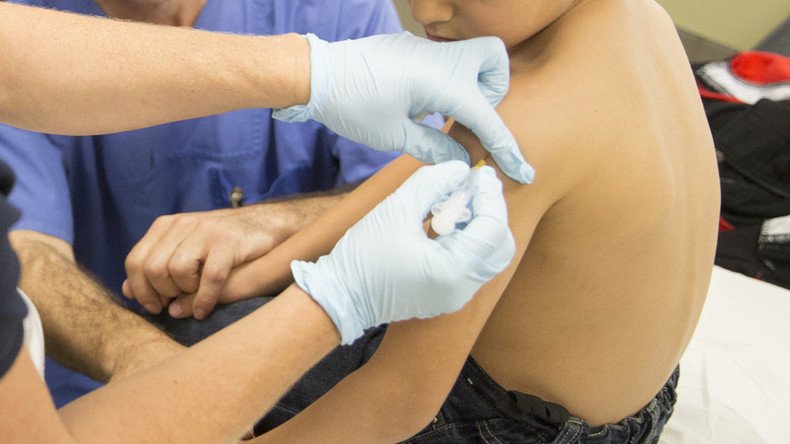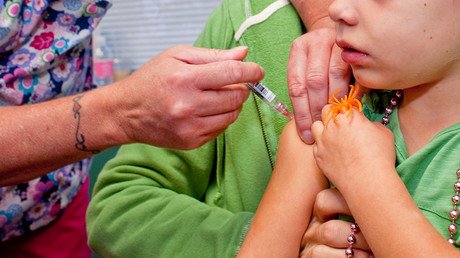Vaccines can be blamed for diseases without any proof, EU top court rules

As the 'anti-vax' movement continues to gain traction across the globe, the EU's top court has ruled that vaccines can be blamed for diseases even when there isn't any proof they are responsible.
The European Court of Justice ruled on Wednesday that a vaccine can be considered defective - and thus the cause of a disease - if there is "specific and consistent evidence" related to when the vaccine was administered, the patient's previous state of health, the lack of family history of the disease, and a significant number of reported cases of the disease occurring following vaccination.
The court went on to state that such factors could lead a court to determine that "the administering of the vaccine is the most plausible explanation" for the disease, and that "the vaccine therefore does not offer the safety that one is entitled to expect," AP reported.
The ruling is related to the case of a Frenchman known as Mr. J.W., who was diagnosed with multiple sclerosis about a year after he was vaccinated against hepatitis B in the late 1990s.
The man and his family sued the vaccine's maker, Sanofi Pasteur, seeking compensation for the damage Mr. J.W. had suffered, allegedly from the hepatitis B vaccine.
However, France's Court of Appeal ruled that there was no causal link between the vaccine and the disease diagnosis, and dismissed the case. The case was then taken to France's Higher Court of Cassation, and later to the European Union, leading to the Wednesday verdict. However, Europe's top court did not rule on the individual case of Mr. J.W., who died in 2011.
The ruling comes amid an 'anti-vax' campaign which is sweeping countries across the globe, with parents claiming vaccines are linked to conditions ranging from autism to cancer.
Earlier this month, 130 Italian families threatened to seek asylum in Austria to circumvent a requirement for all children to have a mandatory 12 vaccinations to enter school.
Italy has seen a huge spike in measles outbreaks this year, with the Health Ministry stating earlier this month that 2,851 cases have already been reported, with 89 percent of those affected being unvaccinated. Those numbers far surpass the 844 measles cases reported in the whole of 2016.
The anti-vax movement has also been blamed for recent outbreaks of measles in the US state of Minnesota, and health officials also fear the anti-vax movement could lead to a resurgence of polio.
In March, the World Health Organization (WHO) reaffirmed its stance that vaccines are safe, and that "most vaccine reactions are usually minor and temporary."
"It is far more likely to be seriously injured by a vaccine-preventable disease than by a vaccine. For example, in the case of polio, the disease can cause paralysis, measles can cause encephalitis and blindness, and some vaccine-preventable diseases can even result in death," it wrote.














